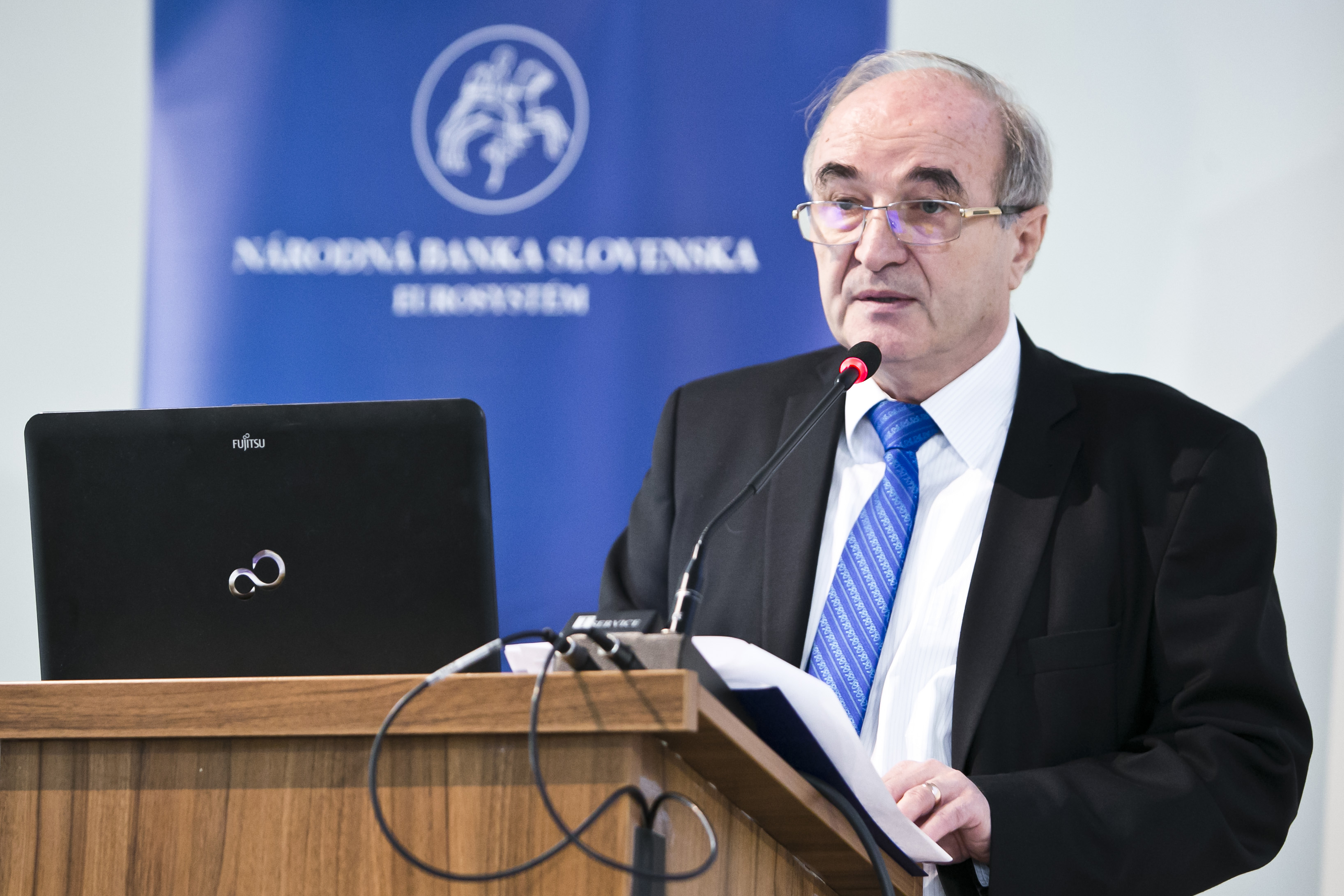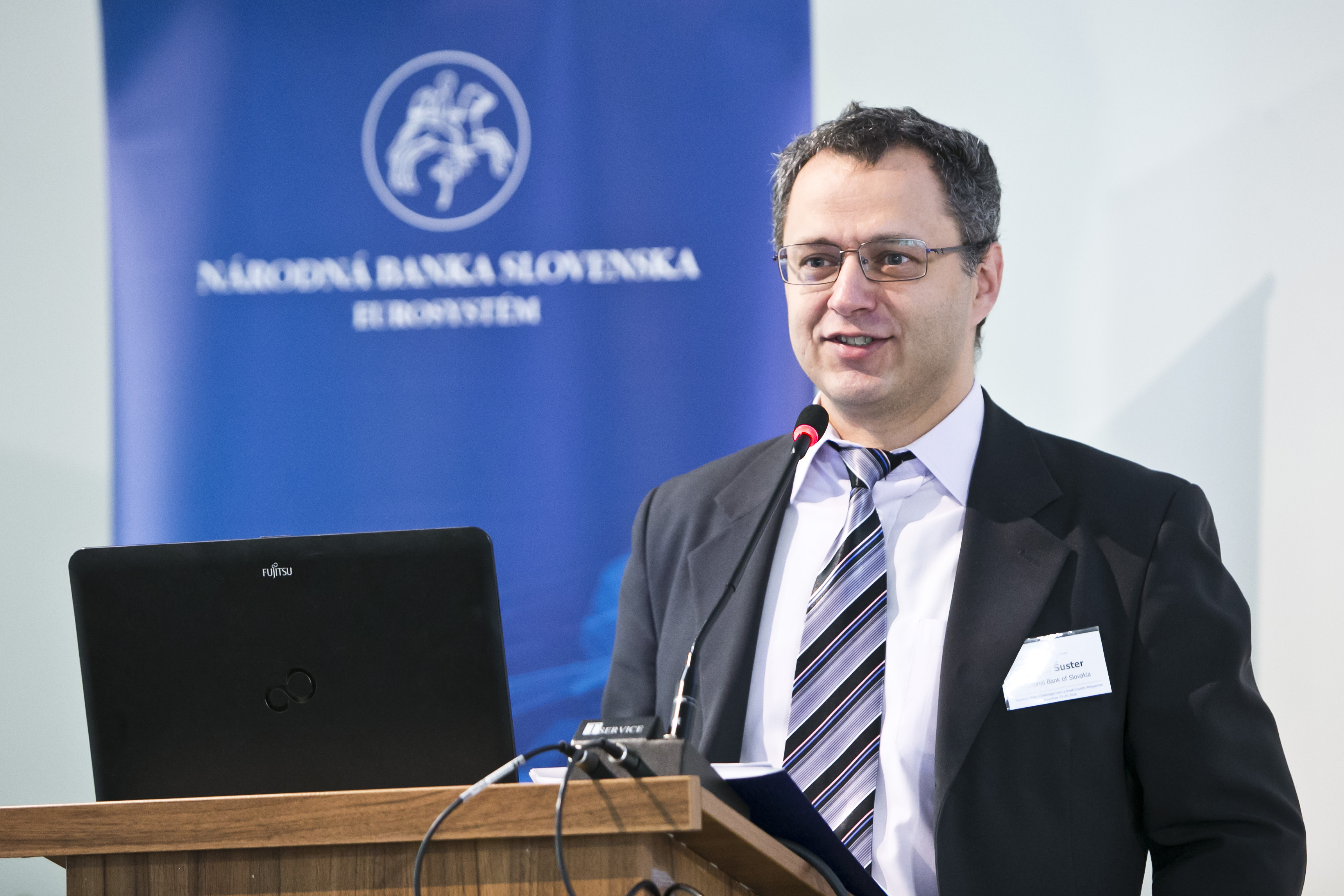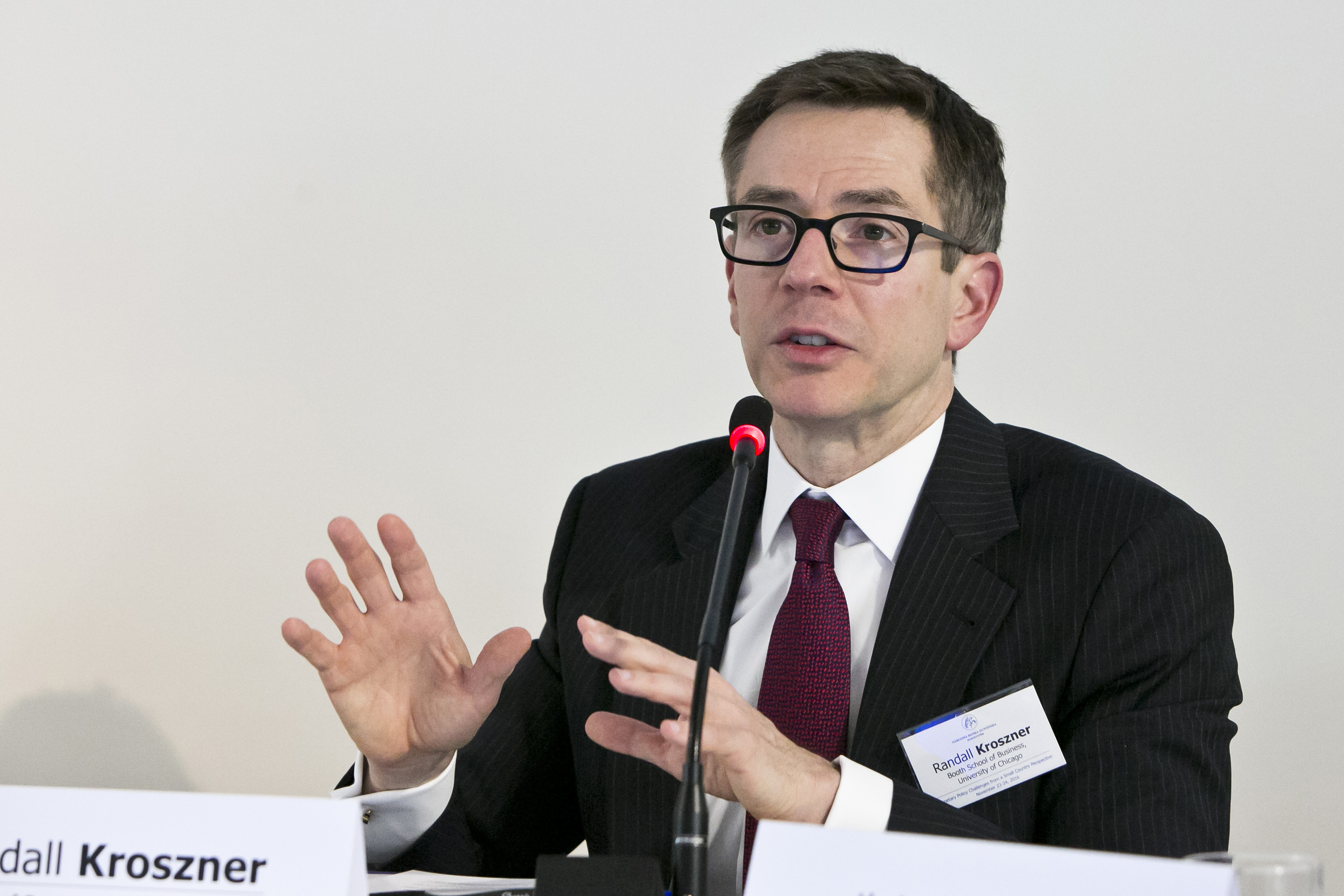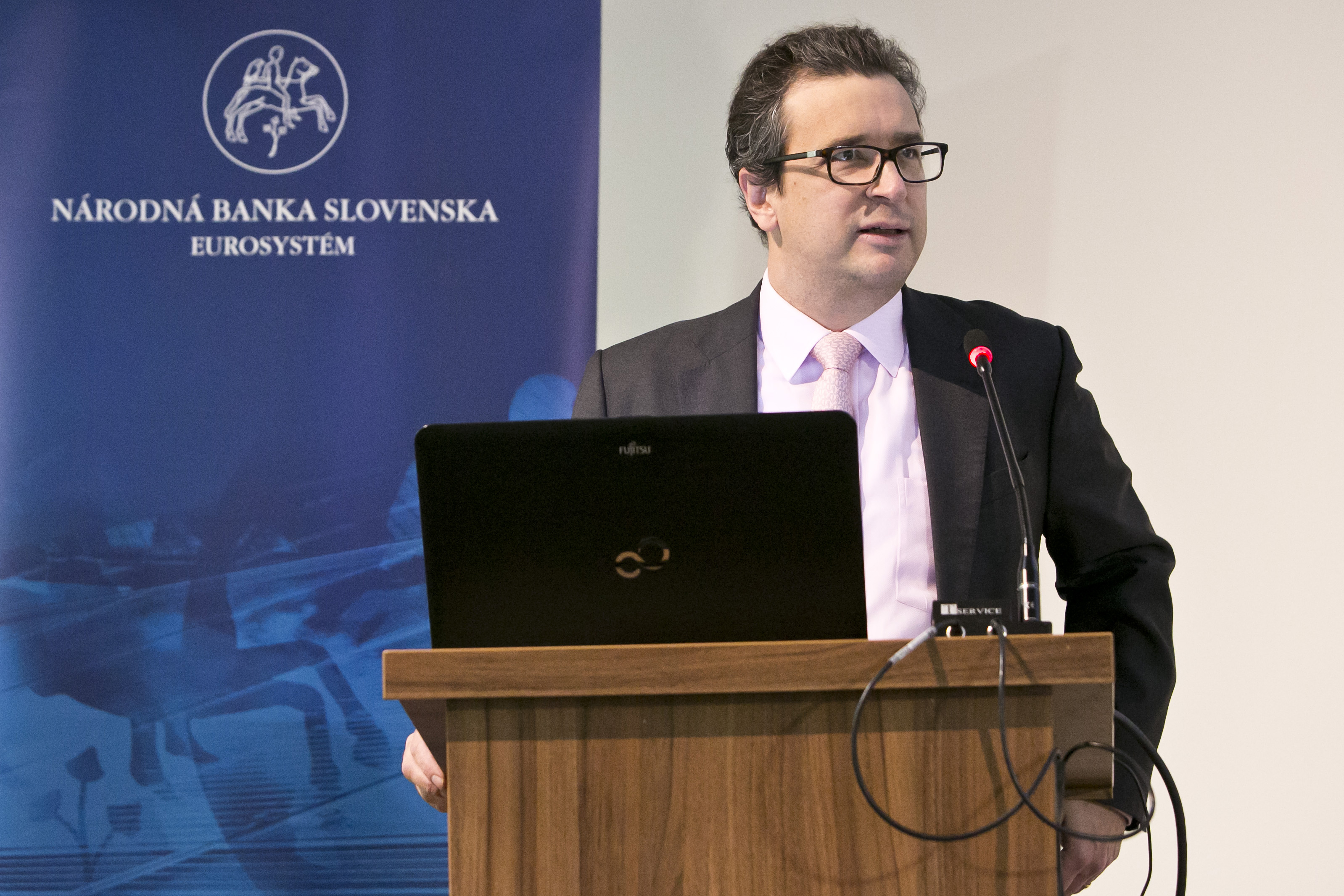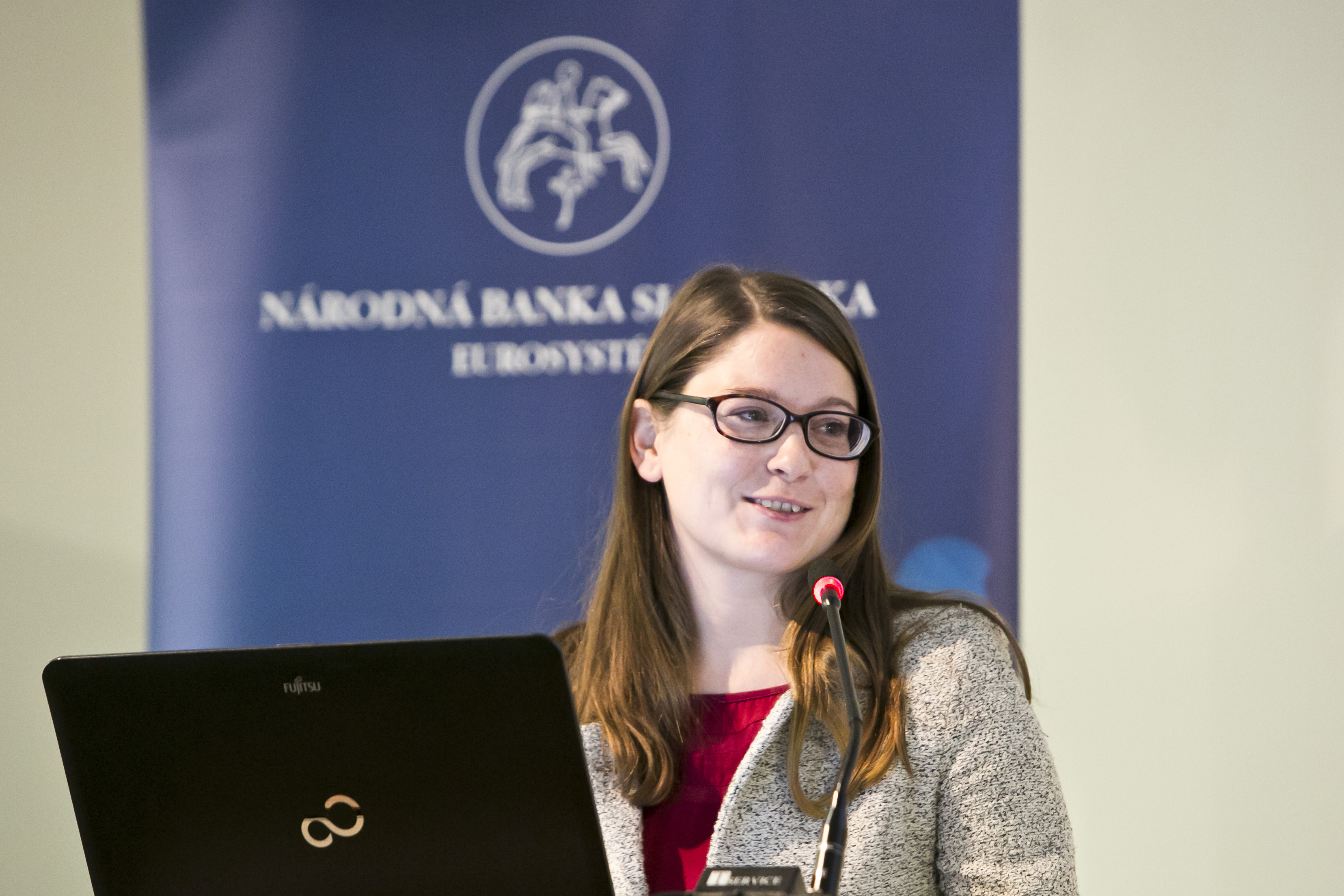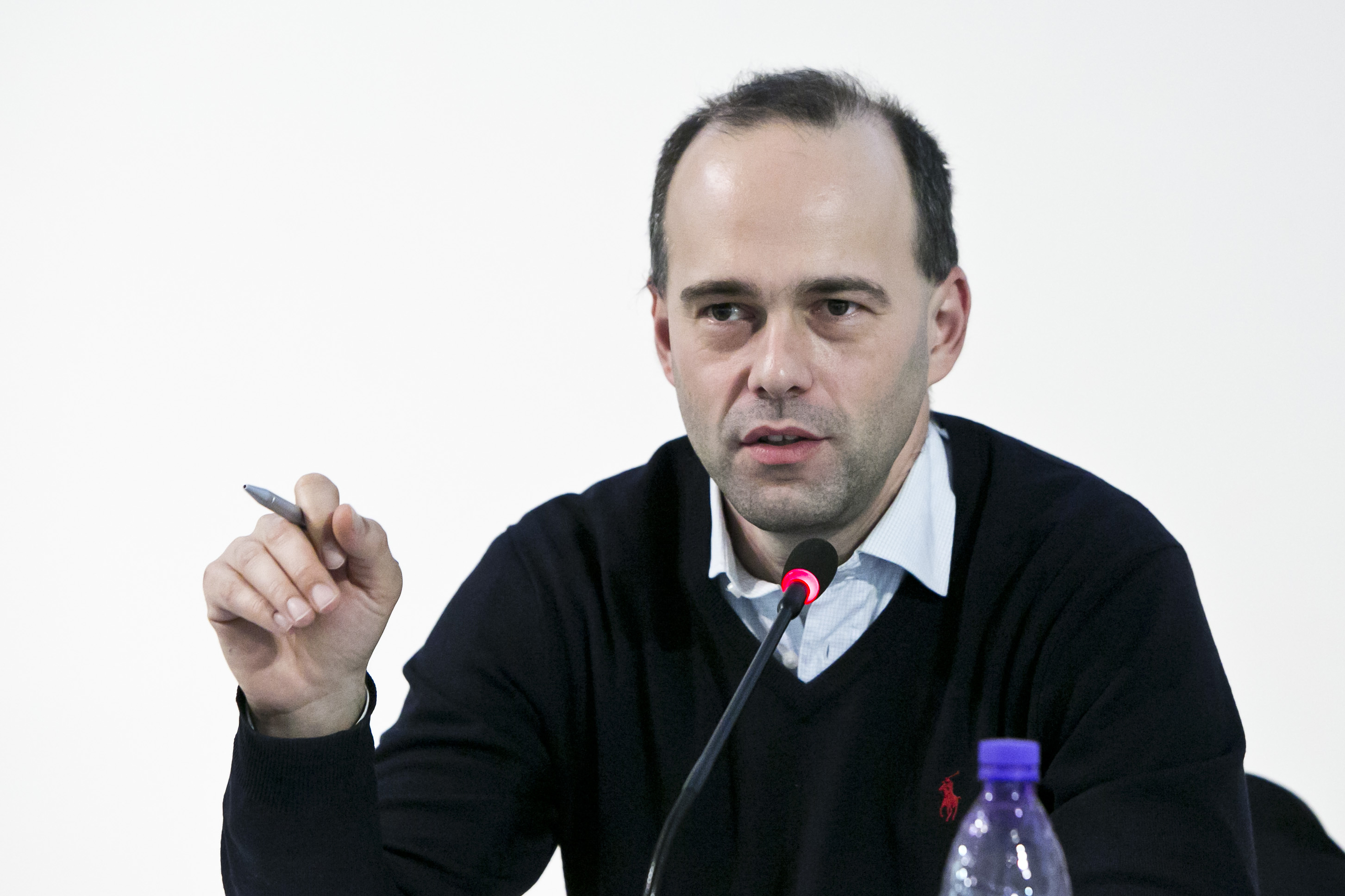-
NBS Tasks
Browse topics
- Monetary policy
- Financial market supervision
- Financial stability
- Banknotes and coins
- Payments
- Statistics
- Research
- Legislation
-
Publications
- Activity Report of the NBS Innovation Hub Annual Report Carbon Footprint Report of NBS Climate-related disclosures of NBS non-monetary policy portfolios Economic and Monetary Developments Financial Stability Report Investment Policy Statement of the National Bank of Slovakia Macroprudential Commentary
- Policy Briefs Report on the Activities of the Financial Market Supervision Unit Research Papers: Working and Occasional Papers (WP/OP) Statistical Bulletin Structural Challenges Other publications Sign up for your email notifications about publications
- About the Bank
- Media
- Frequently asked questions
-
For the public
Browse topics
- About the Bank
- Exchange rates and interest rates
- Banknotes and coins
- Payments
- Financial stability
- Financial market supervision
- Statistics
- Legislation
-
Publications
- Activity Report of the NBS Innovation Hub Annual Report Economic and Monetary Developments Financial Stability Report Macroprudential Commentary
- Report on the Activities of the Financial Market Supervision Unit Research Papers: Working and Occasional Papers (WP/OP) Statistical Bulletin Other publications Sign up for your email notifications about publications
- Frequently asked questions
- Media
- Careers
- Contact
Conference "Monetary Policy Challenges from a Small Country Perspective"
On 23-24 November the National Bank of Slovakia hosted a research conference on the subject of monetary policy challenges and non-standard monetary policy options from the view of a small open economy, entitled “Monetary Policy Challenges from a Small Country Perspective”.
The conference was opened by the NBS Governor, Jozef Makúch, who in his opening remarks said: “We are currently facing challenges in regard to monetary policy innovation. We now know far more about the operation of new instruments than we did when the ECB launched its asset purchase programme, yet many questions remain to be answered. A number of interesting questions pertain to small open economies with less liquid financial markets, such as Slovakia.”
The keynote contributions to the conference were delivered by Randall Kroszner, Professor of Economics at the Chicago Booth School of Business and a former member of the Board of Governors of the Federal Reserve System, and Andrew Filardo, Head of Monetary Policy at the Bank for International Settlements and a former member of the US President’s Council of Economic Advisers.
Professor Kroszner noted in his address that exceptional measures are required during a crisis and that central banks have a duty to use their powers to avert a debt-deflation spiral. Such measures, however, can only be temporary and must not be relied on over the longer term. In discussion with Ľuboš Pástor, a member of the NBS Bank Board, Professor Kroszner stressed the importance of understanding unintended policy consequences that may appear only in the long run.
Mr Filardo focused on the optimal setting of monetary policy objectives, arguing that central banks must seek not only price stability, but also financial and exchange-rate stability. He noted that, ideally, monetary and macroeconomic policies should be complementary, but unfortunately they sometimes worked against each other.
Among the other issues discussed were: how to estimate the impact of specific non-standard monetary policies on inflation, economic growth and employment; how to correctly time and sequence the implementation of non-standard monetary policies; the causes and consequences of the current low inflation environment; the importance of central bank forward guidance as a monetary policy tool; and monetary policy transmission in small open economies.
The conference programme and presentations
